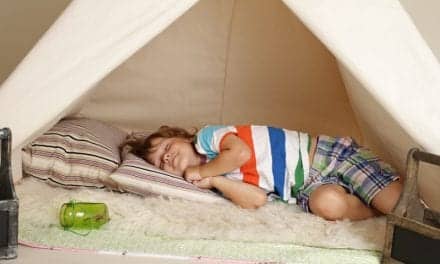The American Academy of Pediatrics (AAP), an organization dedicated to the health, safety and well-being of infants, children, adolescents and young adults, announced a new collaboration to provide parents and families in under-resourced communities with information and important baby gear to help keep infants safe while they sleep.
The AAP has selected five hospitals as the recipients of the inaugural Community Partnership Approaches for Safe Sleep (CPASS) initiative. They include: Rush Children’s Hospital in Chicago; Children’s of Alabama in Birmingham; Golisano Children’s Hospital in Rochester, N.Y.; OHSU Doernbecher Children’s Hospital in Portland, Ore.; and Arkansas Children’s Hospital in Little Rock. All five hospitals have existing injury prevention programs affiliated with the Injury-Free Coalition for Kids and engage local community-based organizations that serve expectant mothers and families.
The new initiative will be led by pediatric care experts from the AAP who will work with hospital networks and community-based organizations to create impactful, culturally sensitive material that educates caregivers about creating a safe sleep environment.
“Being a parent of a new baby is a wonderful experience, but it can also be overwhelming to parents who are trying to help their baby to sleep. Equipping parents with practical strategies to help their babies sleep safely, as well as offering cribs and other safe sleep products, is an innovative way to connect with parents at this critical stage for their family, and we’re pleased to team up with Amazon on this initiative,” says Lee Savio Beers, MD, FAAP, president of the AAP, in a release.
AAP has partnered with Amazon on a multi-year commitment to support this new initiative.
“Helping new parents gain the knowledge and knowhow they need to help adopt safe sleeping habits is a cause Amazon deeply believes in,” Mark Fellin, Amazon’s head of product trust and regulatory compliance, says in a statement. “We are thrilled to work with the AAP to create an educational campaign that can be accessed remotely by all caregivers and help raise awareness of a safe sleep environment.”
The programming will focus on families in traditionally under-resourced communities. Studies show that sleep-related deaths have notable racial and ethnic disparities, with non-Hispanic Blacks and American Indian and Alaskan Native infants experiencing sleep-related deaths at a rate two times that of non-Hispanic white infants. Overall, poverty is associated with a disproportionately high risk of suffocation-related deaths, as lack of an appropriate sleep space often leads to bed sharing, which is a leading cause of infant suffocation.
Together, hospitals and community organizations will develop parent education resources and strategies that are culturally and linguistically appropriate for each community and will also include significant input from community representatives.
“There are few things we can say are 100% preventable. Infant deaths from unsafe sleeping conditions is one such thing. Parents need to know that products advertised for babies are actually safe for babies and that is why this initiative is critical for the safety of infants everywhere,” Elizabeth Murray, DO, MBA, FAAP, faculty director of child health and safety communication at Golisano Children’s Hospital in New York, says in a release.
Through the program, hospitals will partner with community-based organizations to offer educational programs on safe infant sleep for new parents. Parents who participate in the program will receive cribs, bedding and other gear that is approved for safe infant sleep.




